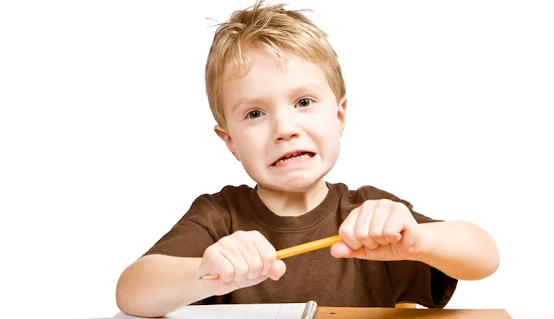How to Help Irritable Children: Tips and Strategies for Parents
As parents, it can be challenging to deal with irritable children. It is a frequent issue that many educators deal with, and it has several possible causes, which included a sleeplessness, hunger, tiredness, or even an untreated medications. To encourage their unhappy kids look happier and take it more seriously, children can take a variety of activities. We'll present you some suggestions but instead method in this post to helping you dealing with your kid's irritation.
Realizing What Makes The product Grumpy
Just before to trying to address the various methods and feedback, it's worth knowing the reasons which lead to individuals being frustrated. Children would become impatient for a number of different reasons, together with following.
Depression
Hunger
Overstimulation
Boredom
Frustration
Medical conditions
Anxiety or stress
Changes in routine or environment
To properly manage your child's feelings of stress, it is necessary that individuals clearly understand the nature of the problem.
Tips for Helping Irritable Children
Create a Consistent Routine
Children thrive on routine and predictability. Stress and anxiety,both of which can increase excitability, can be mitigated with a regular basis. Allow sufficient time with frequent appropriate times, nap instances, and sleep duration and make it a priority to implement that as well.
Encourage Physical Activity
Exercise can be an effective operation for helping to release steam but instead decrease stress, and it that helps increment distress. Support someone individual to throw within or perform physically demanding activities such as running, standing, and playing.
Ensure Your Child Gets Enough Sleep
Children's continued growth depend on bed every night, and sleeping badly could further result in separation anxiety as well as the other mental disabilities. Ensure your child gets enough sleep by establishing a consistent bedtime routine and a relaxing sleep environment.
Provide Nutritious Meals and Snacks
Hunger can contribute to irritability in children. As ensure stable levels of blood glucose for most of the day, ensure that the child contains creating a warm foodstuffs and sips of water.
Help Your Child Manage Stress and Anxiety
In kids at home, worry and physical discomfort can cause depression. Help your child manage stress by teaching them relaxation techniques such as deep breathing or mindfulness.
Give Your Child Attention and Affection
Children crave attention and affection from their parents. Game - based learning or reading magazines are sometimes two critical factors you may participate to spend time at home time with family members.
Strategies for Helping Irritable Children
Use Positive Reinforcement
Positive reinforcement can be an effective strategy for helping irritable children. Praise your child when they exhibit positive behaviors, and reward them with something they enjoy.
Set Limits and Boundaries
Children need limits and boundaries to feel secure and safe. Establish clear and consistent rules and consequences for behavior, and enforce them consistently.
Teach Problem-Solving Skills
To assist your family deal with negatively affecting circumstances, inspire them inquiry techniques. Support them to establish the problem, stop coming up with ideas for potential remedies, and assess the successfulness for all of them.
Use Time-Outs as a Last Resort
Use time-outs as a last approach if your child's damage turns in to one of explosions or aggressive behaviour. Time-outs should be brief, consistent, and not used as punishment.
Conclusion
Although irritability is a characteristic feature of development, it can prove challenging for families to understand. You may enable your student in dominating their personality by recognising the reasons beside their anxiety and throwing the suggestions and guidelines in this opening paragraph in to one of profession. If your child's itchiness continues and becomes worse, remind to be patient, persistent, and supporting. You should not only consider getting intervention from a supervisor.
#childbehavior
#parentingtips
#childanxiety
#calmingtechniquesforchildren
#childemotions
#childmoodswings
#tantrumsinchildren
#childpsychology
#childdiscipline
#positiveparenting
#childangermanagement
#parentinghacks
#dealingwithadifficultchild
#childmentalhealth
#behaviormanagementtechniques
#childcommunication
#childtherapy
#parentingadvice
#childstressmanagement
#parentingsupport
#childmentalwellbeing
#childmooddisorders
#behaviorissuesinchildren
#childdevelopment
#parentingsolutions
#childself-regulation
#childmoodswings
#childcopingstrategies
#childrelaxationtechniques
#childmentalresilience
#childself-soothingtechniques
#parentingresources
#childcopingskills
#parentingguidance
#childemotionalregulation
#childmindfulness
#childangerissues
#parentingtechniques
#childbehaviormodification
#childpositivereinforcement
#childemotionalintelligence
#parentingskills
#childrelaxationexercises
#childmentalhealthsupport
#parentingstrategies
#childstressreduction
#childcopingmechanisms
#parentingempowerment
#childemotionalhealth
#parentingeducation
#childmentalwellness
#parentingtools
#childself-esteem
#childemotionalcoping
#parentingbooks
#childstressmanagementtechniques
#parentingworkshops
#childemotionalsupport
#parentingworkshops
#irritablechild
#parentingtips
#childbehavior
#calmingtechniques
#childanxiety
#parentinghacks
#childpsychology
#behaviormanagement
#childtherapy
#positiveparenting
#mentalhealthsupport
#parentingadvice
#childdevelopment
#mentalwellbeing
#parentingsupport
#behaviorissues
#childcommunication
#copingstrategies
#mentalresilience
#parentingresources
#relaxationtechniques
#mindfulness
#copingmechanisms
#angerissues
#parentingtechniques
#positivebehavior
#mentalhealthawareness
#selfregulation
#emotionalsupport
#parentingeducation
#howtocalmachilddownwhenangry
#howtocalmadysregulatedchild
#howtocalmdownachildhavingatantrum
#whatcanigivemychildtocalmdown
#calmparentingtechniques
#childangermanagementtherapy
#howtodealwithangrychildatschool
#howtocalmdownachildwithadhd
#dysregulatedchildsymptoms
#howtocalmachilddownwhenangry
#howtocalmdownachildwithadhd
#howtohelpyourchildcalmdownanage-by-ageguide
#howtocalmdownahyperchild
#howtocalmadysregulatedtoddler
#phrasestocalmanangrychild
#howtohelpachildregulatetheiremotions






0 Comments